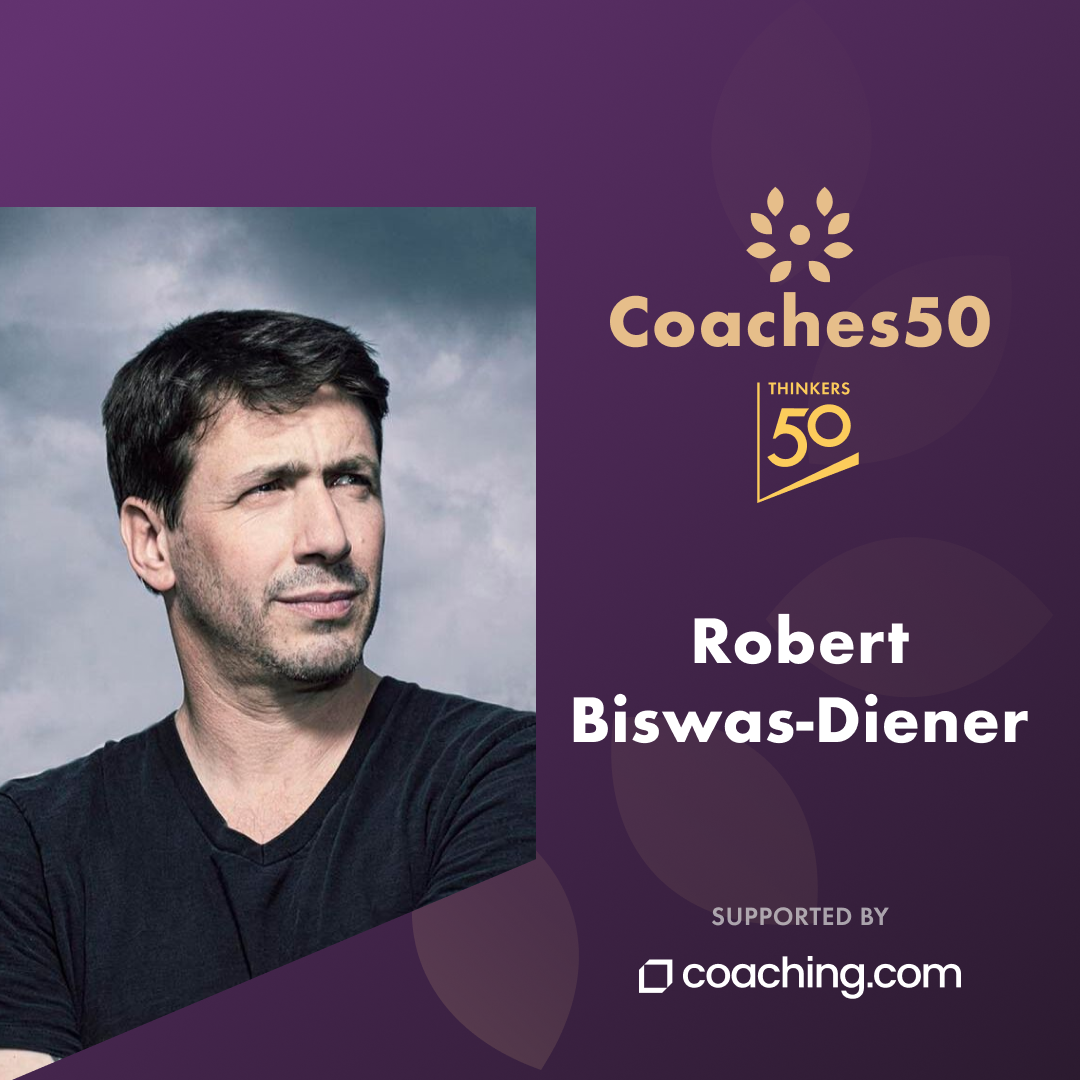The Future in Mind
By Dr. Robert Biswas-Diener

People have a unique capacity to think about the future. Are you doing it well?
In this post
Introduction
Humans have a remarkable quality: the ability to think about the future. Unlike meerkats or mushrooms or magnolia trees, we don’t live only in the present moment. We anticipate what might happen at tomorrow’s staff meeting. We imagine vacationing in Morocco next year. We consider how much we ought to save for retirement. These acts of “mental time travel” are not frivolous. They are central to who we are, how we make decisions, and allocate our resources.
Psychologists call this future-oriented thinking “prospection,” and in recent years it’s begun to receive the serious attention it deserves. Researchers Roy Baumeister and Martin Seligman– two of psychology’s most prolific and provocative minds– have called prospection “a fundamental human capacity” and argue that it might be as essential to human flourishing as memory or reason.
But what exactly is prospection? Why does it matter for performance and well-being? And how can we harness it more skillfully in our daily lives? Let’s take a look.
What is Prospection?
Simply put, prospection is thinking about the future. More technically, it is the mental simulation of possible future events. It ranges from the mundane (“I’ll bring a jacket in case it’s chilly tonight”) to the profound (“How would I like to be remembered after I am gone?”). Prospection includes a wide range of psychological processes: planning, predicting, worrying, hoping, anticipating, and envisioning. It is what you do when you practice for a job interview, invest in the stock market, agree to a date, purchase a swimsuit before a tropical vacation, save for retirement, and visit a lawyer to write a will.
Prospection is not just something humans can do—it is something we do (and do constantly). Studies show that people spontaneously think about the future as much as they think about the past, and in some samples, even more so.
I mention the past because, in the past, so much of psychological research and theory has focused on thinking about the past. In the 1800s, for instance, Hermann Ebbinghaus pioneered the study of memory by having people remember words and syllables. A century ago, Freud focused his clinical treatments, in part, on the recounting of childhood experiences. Modern psychologists have studied the effects of positively reminiscing about past experiences.
Despite our heavy attention to the past, Baumeister argues that prospection is the primary human cognitive adaptation. In his own words, “The primary function of the brain is not to think about the past. It is to anticipate and prepare for what is to come.”
To illustrate this point, consider an experiment in which a ball is rolled down a tube until it reaches a Y-shaped junction. It then enters either the left-hand or the right-hand tube, where it falls out. Researchers employed exactly this paradigm with orangutans and chimpanzees. If they caught the ball, they were rewarded. The apes covered one of the two tubes and, therefore, caught the ball approximately half the time. That’s about the same cognitive processing power as human two-year-olds (who also participated in the experiment). This suggests some short-term anticipation. Apes and toddlers both seem to understand that the ball will drop and eventually pop out of the end of one of the tubes. By age four, however, human children were covering both tubes and catching the ball 100% of the time. This is a more complex form of anticipation because it mentally simulates multiple scenarios.
Baumeister suggests that memory evolved, in large part, for prospection. We don’t remember just to recall—we remember to anticipate. We remember how awful last year’s flu was, so we get a shot this year. We remember how we bombed that presentation, so we can practice harder next time. We remember that last year was hot, so we plant different crops and save more of our harvest this year. Memory, when looked at this way, is a tool for future-proofing.
Using Prospection
In some sense, you do not need to be told how to use prospection because you already use it. That said, prospection may be a skill at which you can improve. Here are two strategies for you to consider as you develop this cognitive superpower:
Adjust how far you travel into the future.
The future feels less certain than either the present or the past, and this is especially true of the distant future. It is pretty easy to imagine five minutes from now. It is even simple to picture what tomorrow will likely look like. It is somewhat harder to predict what next year might be like. And harder still to imagine what 17 years from now might hold. This means that effective prospection must be calibrated. It must be far enough away from the present to be useful, but not so far that it is impossible.
Imagine a couple wanting to purchase a new home. They are walking through a candidate house and trying to imagine a life there—a life in the future. It is tempting to focus on the period around the move. Where will they put their books? What new pieces of furniture will they have to buy? Who will attend the housewarming party? How will living on a busy intersection be? In this example, it can be helpful to fast forward 6 months into the future. The hassles of moving are behind them. They have adapted to the noise and traffic. The excitement of showing off their new homes has dimmed. Imagining a typical day six months from now may give the couple a better vision of the future and help them make a wiser decision.
How far into the future you jump will depend on the circumstances. Planning for tomorrow’s sales call will be different from planning next year’s vacation. My advice here is not to foreclose on your first instinct. Imagine whatever future comes naturally to you. But, in addition, picture a further or nearer future that might also be useful.
Future emotional retrospection.
Although it involves “looking back,” this mental technique is actually a form of prospection. In it, you imagine yourself in the future looking back on the present moment. The decisions you are currently making have all played out, and you have the opportunity to see their consequences. You can imagine how you feel. Are you regretful? Proud?
Baumeister argues that our anticipated future emotions are a powerful influence on our current behavior. If you see yourself being regretful, for instance, that cannot help but influence your decisions and current actions.
I heard another variation of this from Danny Kahneman. He referred to it as a “pre-mortem.” When businesses conduct a “post-mortem,” they review a project to ascertain where it was strong and weak, and what might have been changed. It turns out that we can also do this before the project launches. We simply pretend that it has reached its natural conclusion. We make predictions about its relative success. And we envision the various processes and decisions along the way that helped or hindered that success. Our guesses might not be wholly accurate, of course, but they can shed light on crucial themes, topics, and moments to inform better planning.
Conclusion
The good news is that you already spend time thinking about the future. It is a familiar skill. That said, you probably fantasize, predict, and plan intuitively. This is an opportunity to make those processes more intentional and to reflect on them. Try experimenting with prospection and with the idea that—like any skill—it can be improved through intentional practice and feedback.

About the author
Dr. Robert Biswas-Diener
Dr. Robert Biswas-Diener is passionate about leaving the research laboratory and working in the field. His studies have taken him to such far-flung places as Greenland, India, Kenya, and Israel. He is a leading authority on strengths, culture, courage, and happiness and is known for his pioneering work in the application of positive psychology to coaching.
Robert has authored more than 75 peer-reviewed academic articles and chapters, four of which are “citation classics” (cited more than 1,000 times each). Dr. Biswas-Diener has authored nine books, including the 2007 PROSE Award winner, Happiness, the New York Times Best Seller, The Upside of Your Dark Side, the 2023 coaching book Positive Provocation, and Radical Listening, in 2025.
Thinkers50 named Robert to be among the 50 most influential executive coaches in the world.
Robert Biswas-Diener

Get updates and exclusive resources



